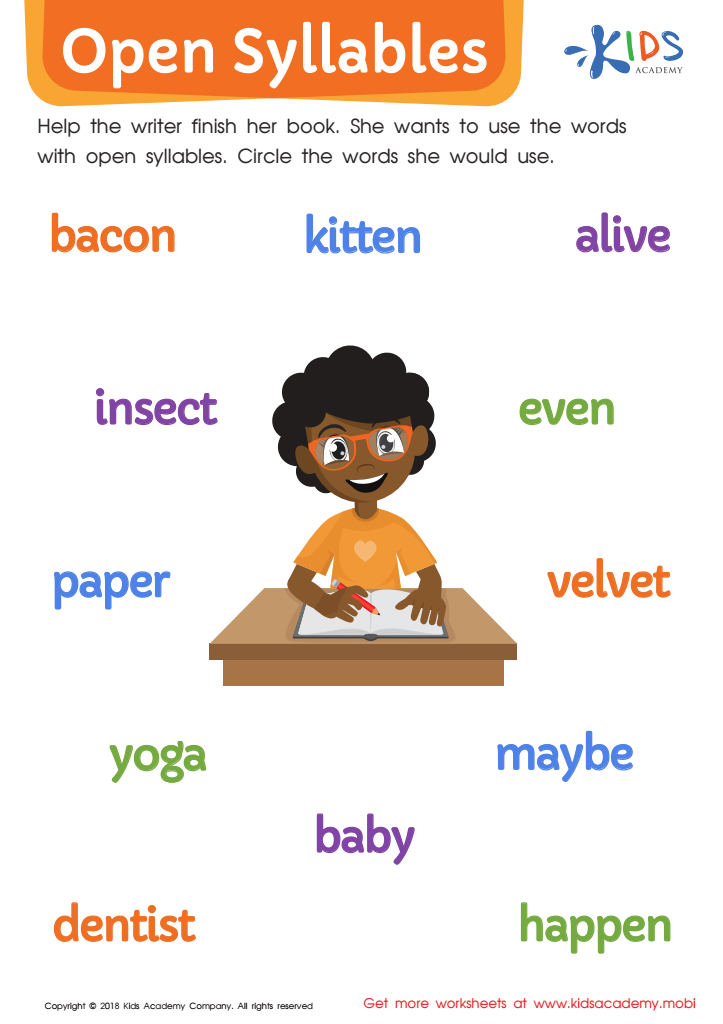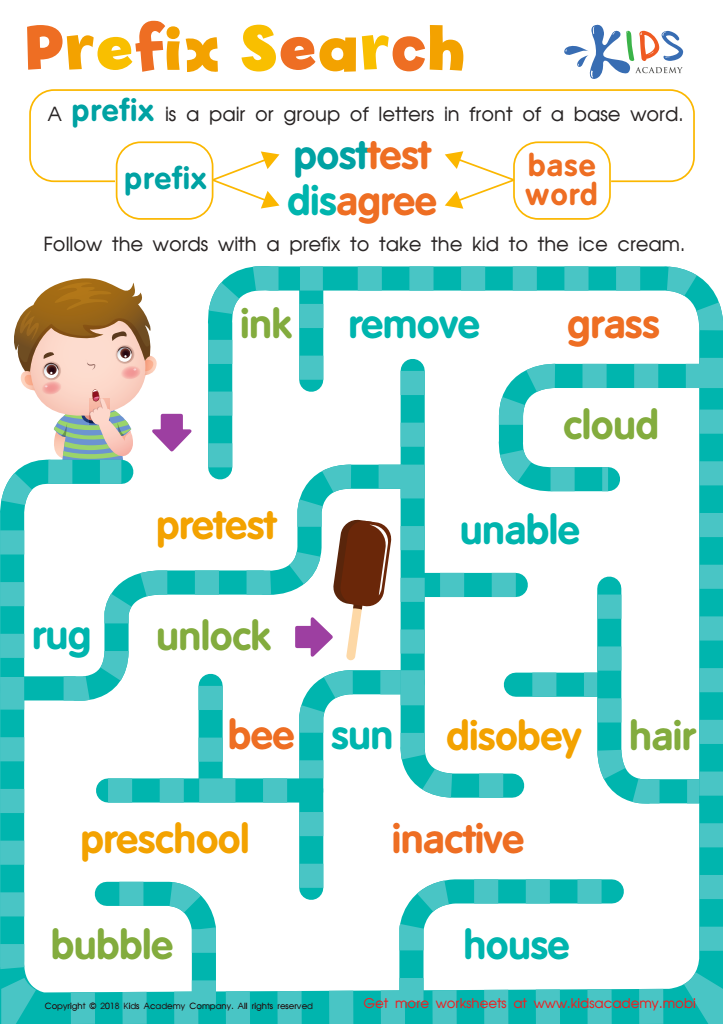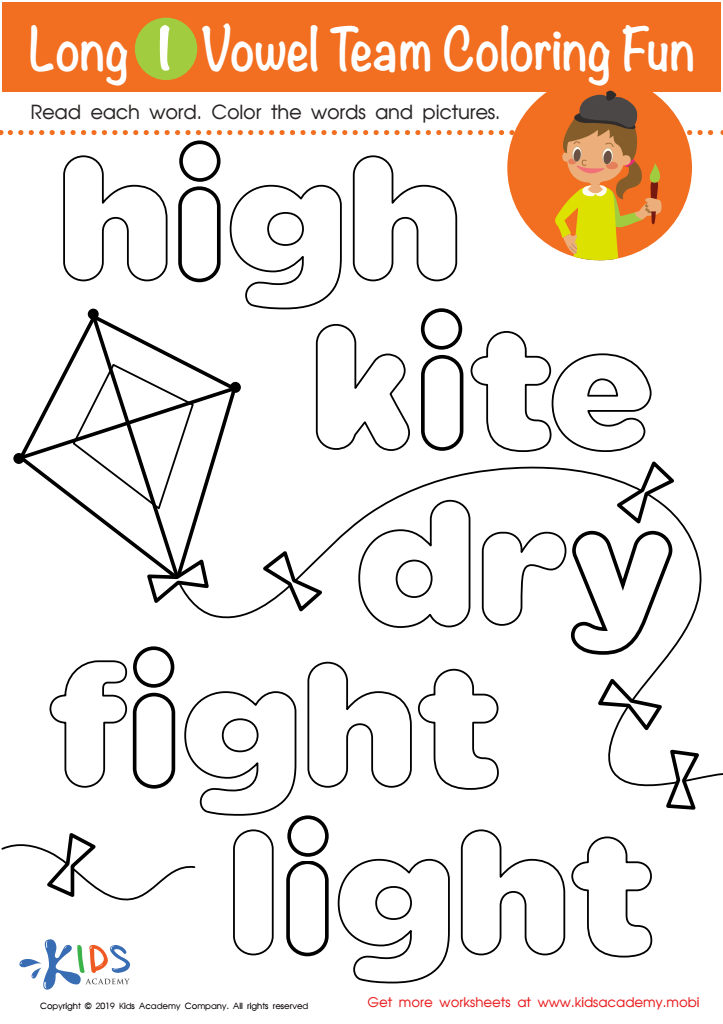Word identification Normal Phonics Worksheets for Ages 3-9
6 filtered results
-
From - To
Boost your child's reading skills with our Word Identification Normal Phonics Worksheets, perfect for ages 3-9! These engaging and interactive worksheets are designed to help young learners develop essential phonics skills, focusing on recognizing and identifying words. Each worksheet features colorful illustrations and fun exercises that capture children's interest while reinforcing their vocabulary. Ideal for both classroom settings and at-home learning, our worksheets promote comprehension and fluency through playful activities. Give your child the foundation they need for early literacy success. Dive into the world of words and let their reading journey begin with our expertly crafted phonics activities!


Open Syllables Worksheet


Phonics and Word Recognition: Assessment 1 Worksheet


Reading: Prefix Search Worksheet


Long I Vowel Team Coloring Worksheet


Phonics and Word Recognition: Assessment 2 Worksheet


Phonics and Word Recognition: Assessment 1 ELA Worksheet
Word identification and normal phonics are essential components of early literacy development for children aged 3-9. Parents and teachers should prioritize these skills because they form the foundation for reading proficiency, which is crucial for academic success across all subjects. Through phonics instruction, children learn to associate sounds with letters, enabling them to decode and recognize words. This skill is vital for fluent reading and comprehension.
Early mastery of phonics enhances a child’s confidence, as they can read independently and engage more in learning activities. It also facilitates vocabulary expansion and improves spelling skills. Children who struggle with word identification may experience frustration and a lack of interest in reading, leading to long-term academic challenges.
Moreover, strong phonics skills promote critical thinking and reasoning, as children learn to analyze and manipulate language. By investing in word identification and phonics at an early age, parents and teachers can help nurture a lifelong love for reading, encouraging students to explore diverse texts and express themselves creatively. Ultimately, promoting effective phonics education helps ensure that all children are equipped with the necessary resources to succeed in school and beyond, fostering confident and competent readers.

 Assign to My Students
Assign to My Students




















